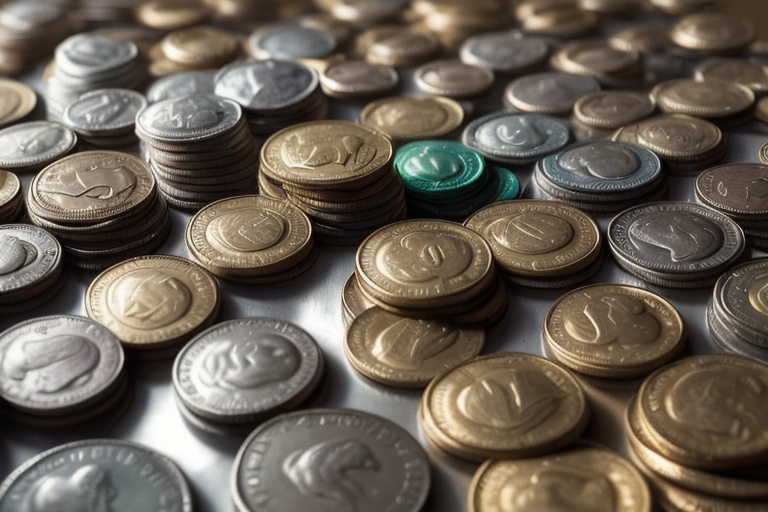Coin collecting has long been a source of fascination and joy for individuals from all walks of life. Venturing into the realm of numismatics opens up a window to history, artistry, and economics, all encapsulated within the small discs of metal we call coins. As both a pastime and an investment, coin collecting offers a unique blend of satisfaction and potential financial reward. But, what gives a coin its value, and how can collectors determine the worth of their treasures? Today, we will delve into the factors that influence coin valuation—a topic that lies at the heart of the numismatist's pursuit.
Coin collecting has long been a source of fascination and joy for individuals from all walks of life. Venturing into the realm of numismatics opens up a window to history, artistry, and economics, all encapsulated within the small discs of metal we call coins. As both a pastime and an investment, coin collecting offers a unique blend of satisfaction and potential financial reward. But, what gives a coin its value, and how can collectors determine the worth of their treasures? Today, we will delve into the factors that influence coin valuation—a topic that lies at the heart of the numismatist's pursuit.
The Impact of Precious Metals on Coin Values
One of the primary determinants of a coin's value is its precious metal content. Gold and silver coins, for instance, are often more valuable than their face value due to the intrinsic worth of the metal. Precious metal markets can fluctuate, with prices rising in times of economic uncertainty. Because of this, even a simple silver coin with a nominal face value can command a much higher market price based on the silver it contains.
The Unique Nature of Banknote Valuation
Unlike coins, banknotes have a valuation that is more straightforward, at least concerning those issued by central authorities like the Bank of England. Such banknotes will maintain their face value, making them a more predictable, though not necessarily less collectible, form of currency. The longevity of their worth is guaranteed, allowing holders to exchange old, valid banknotes at their full face value at any time.
Understanding Coin Catalogue Pricing
For collectors of British coins, the Seaby Standard Catalogue is an indispensable tool, providing an extensive list of catalogue prices. It is imperative, however, to approach these prices with an understanding that they are subject to demand. Catalogue pricing offers a benchmark, but it does not guarantee that a specific coin will sell for the listed price; fluctuating market demands play a crucial role in setting actual buying prices.
The Coin Dealer's Perspective
Coin dealers, integral to the numismatic ecosystem, operate under the principles of business, seeking to acquire coins at a rate that allows for profitability upon resale. It is not unusual for dealers to offer around half of the catalogue price when purchasing coins. This margin allows them room to cover the costs of doing business and ensures they can make a profit. For those looking to part with their coins, considering avenues like Private Treaty Sales or auctions might lead to higher returns, as collectors often pay premiums for coins they especially desire.
Managing Expectations for Old UK Coins
The narrative of discovering a rare and valuable coin in ordinary circulation is enticing but requires a dose of reality. Relative scarcity is a prevalent issue, with more coins existing than collectors to demand them. While this might mean that the coins in your pocket are not likely to be treasures, every now and then, surprises do occur, and that's what keeps the anticipation alive in the coin collecting community.
When Coins Appear Valuable
If you believe you've uncovered a potentially rare or valuable coin, expert opinions are invaluable. Coin dealers and professional valuers possess the expertise to provide accurate assessments, considering the coin's rarity, condition, and current market demand. This professional guidance is crucial for making informed decisions about your collection.
Coin Collecting as an Enduring Hobby
For many, coin collecting remains a captivating hobby. Most coins in circulation may only be worth their stated denomination, but the chance to find a rare piece is always present. Engaging with the different aspects of coin valuation injects an additional layer of excitement into the hobby.
An Inviting Conclusion
In sum, the art of determining the value of coins is at the core of coin collecting. Factors such as supply and demand, condition, and rarity are vital considerations. While precious metals can bolster a coin's value, seeking expert opinions for a precise valuation is essential. Although finding valuable coins in everyday use may be the exception rather than the norm, the thrill of the hunt continues to entice collectors. The world of coin collecting offers a spectrum of opportunities for discovery and enrichment, encouraging hobbyists to immerse themselves in this enthralling pursuit.
Information for this article was gathered from the following source.




